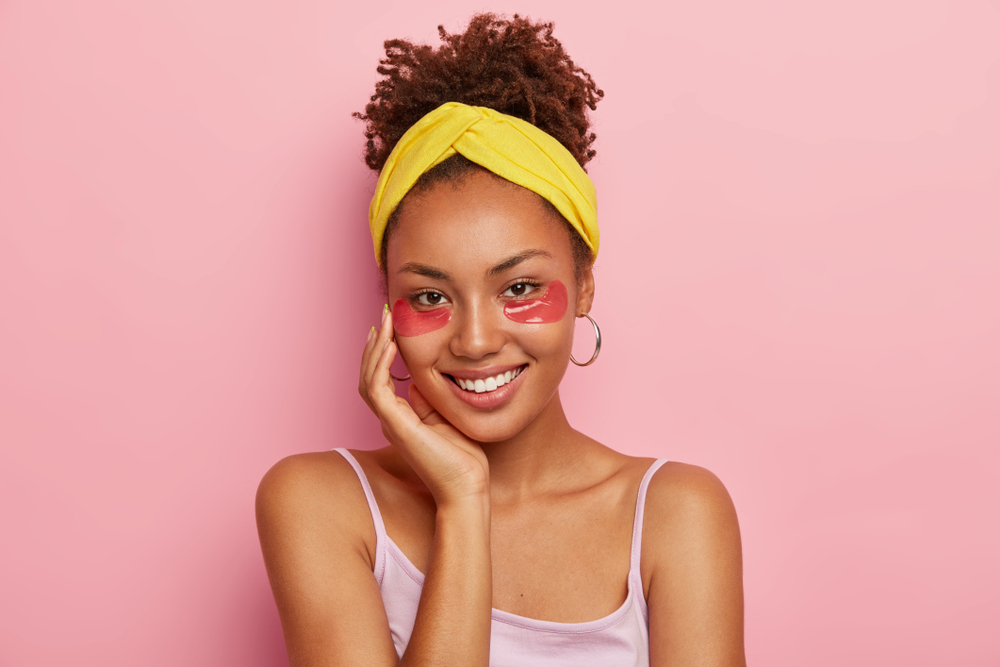When exhaustion takes hold, it’s often our eyes that betray us first. The puffiness that accompanies a restless night is more than just a cosmetic nuisance—it’s a physiological response that reveals much about our overall well-being. This article delves into the reasons behind puffy eyes and offers practical solutions to combat this common sign of fatigue.
The science behind swollen eyes
Fatigue doesn’t just drain our energy; it manifests visibly, particularly around our eyes. This sensitive area becomes a clear indicator of our sleep deprivation, broadcasting our exhaustion to the world.
Fluid retention
At the core of eye puffiness lies the body’s struggle with fluid balance. Sleep deprivation impairs the body’s ability to regulate fluids effectively. During sleep, fluid naturally accumulates under our eyes due to our horizontal position. A well-rested body efficiently redistributes this fluid upon waking. However, when we’re exhausted, this process falters, leaving us with swollen under-eye areas.
Circulation
Fatigue doesn’t just slow us down; it slows our blood flow too. This reduced circulation can cause blood to pool under the eyes, exacerbating puffiness and often contributing to dark circles. The delicate skin around our eyes, already thin and prone to showing signs of wear, becomes even more vulnerable when circulation is compromised.
Elasticity
Our skin’s ability to bounce back is directly impacted by our sleep patterns. Fatigue weakens the muscles around our eyes and reduces skin elasticity. This combination makes it easier for fluid to gather and harder for the skin to regain its taut appearance. Over time, chronic sleep deprivation can lead to more permanent changes in this delicate area.
Cortisol
The relationship between sleep and stress is bidirectional. When we’re tired, our bodies produce more cortisol, the stress hormone. This increase leads to inflammation, particularly noticeable in the thin skin around our eyes. The result is a puffy, swollen appearance that can add years to our perceived age.
Effective strategies to combat puffy eyes
While the causes of puffy eyes are rooted in complex bodily processes, the solutions can be surprisingly simple. Here are some proven methods to reduce eye puffiness:
Cold therapy
Applying cold compresses remains one of the most effective immediate remedies. The cold constricts blood vessels, improving circulation and reducing fluid retention. A chilled spoon, a gel eye mask, or a cool, damp cloth can offer quick relief.
Hydration is key
It might seem counterintuitive, but staying well-hydrated actually helps combat fluid retention. When dehydrated, our bodies cling to every drop, often in visible places like under our eyes. Proper hydration helps flush out excess salt and reduces overall puffiness.
Elevate to alleviate
A simple adjustment to your sleeping position can make a significant difference. Slightly elevating your head while you sleep can prevent fluid from pooling under your eyes. An extra pillow or a slight incline to your bed can work wonders.
Skincare savvy
Incorporating the right products into your skincare routine can help combat puffiness. Look for eye creams containing caffeine, which constricts blood vessels, or hyaluronic acid, which hydrates without causing water retention. Vitamin C can also help brighten the under-eye area, reducing the appearance of fatigue.
The ultimate solution: Sleep
While quick fixes can help, nothing substitutes for adequate, quality sleep. Aiming for 7-9 hours of sleep per night and establishing a calming bedtime routine are the most effective long-term strategies for preventing puffy eyes.
The emotional impact of tired eyes
The effects of puffy eyes extend beyond the physical realm. Many people report feeling self-conscious or stressed about their appearance when their eyes show signs of fatigue. This can affect confidence, especially in professional or social settings where looking alert and engaged is crucial.
However, it’s important to remember that these effects are temporary. With the right combination of self-care, skincare, and sleep, you can look and feel refreshed again.
A wake-up call for well-being
Understanding the science behind puffy eyes offers more than just cosmetic solutions. It provides insight into our body’s complex systems and the importance of rest for overall health. By prioritizing sleep and incorporating targeted care for the delicate eye area, we not only improve our appearance but also boost our overall well-being.
Puffy eyes serve as a visible reminder of our body’s needs. They’re not just a cosmetic concern but a call to action—a prompt to reassess our habits and prioritize our health.
As we navigate the demands of modern life, let’s view those puffy eyes in the mirror not as an inconvenience, but as valuable feedback from our bodies. With a few simple changes and a commitment to self-care, we can face each day with bright, refreshed eyes, ready to take on whatever challenges come our way.
This story was created using AI technology.






